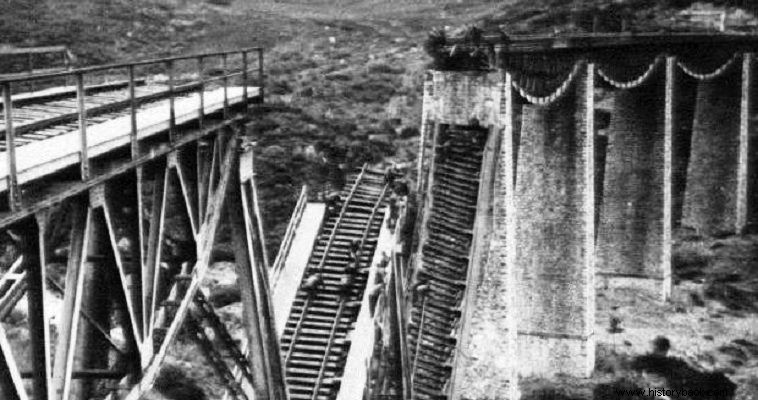
Operation Harling was the code name for the strategic bridge operation in Greece aimed at cutting off the supply of Rommel's army at El Alamein. So the SOE (Special Operations Executive), which coordinated the resistance organizations in the occupied countries, decided to blow up the bridge.
The group of saboteurs arrived in Greece in three missions. The first was led by Lieutenant Colonel Eddie Myers, the second by Major Chris Woodhouse and the third by Major John Cook. In total, the team numbered 13 members, one of whom, second lieutenant Themis Marinos, was Greek.
The British parachuted into Giona on September 30, 1942, as the British 8th Army was preparing its counter-attack at El Alamein. The possible targets were the Gorgopotamos bridge, the Asopos bridge and the Papadia bridge.
Finally, that of Gorgopotamos was chosen. However the British needed help as the bridge was guarded by an Italian company. The British came into contact with Napoleon Zerva's EDES forces on November 2nd, the day the 8th Army broke through Rommel's front. Contact with ELAS and Velouchiotis was made on November 14, when Rommel had already retreated to Libya.
Zervas was convinced and declared that he would participate. But it took painstaking efforts to convince Velouchiotis – the EAM leadership to be precise – to participate in the operation. The British hoped that, although of no practical importance, the sabotage would revive the morale of the Greeks and bring together the resistance organizations.
Finally the operation against the bridge was executed only on November 25, 1942 with the support of a mixed section of EDSE and ELAS rebels, when it was already too late, militarily. The bridge was blown up and the attackers withdrew unmolested with only four wounded. In retaliation, the Germans executed 16 Greeks.
The sabotage was highly successful and was one of the first attacks of its kind in occupied Europe. But the result had almost no practical value, only moral. Even if Rommel wanted to, he could no longer be supplied through Greece.
And the moral effect in Greece quickly dissipated as ELAS started the first civil war in the mountains very soon, wanting to monopolize the resistance. Nevertheless, in Greece, continuing the ostrich policy, we are still talking about stopping Rommel's supply.
